Dogs eat boogers because they have a strong sense of smell, and when they eat boogers, they can outlive those smells. A dog may eat boogers to smell and even taste them. A dog may also eat boogers to groom itself, as taught by its mother or mother. Your dog will come up to you and lick your boogers or even the snot on your nose.
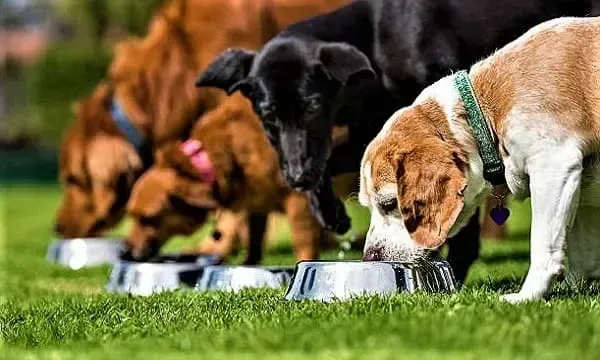
If you notice a booger or two in your dog's eyes, it's most likely just an allergy or regular tearing. Although all dogs will encounter boogers sooner or later, some breeds are more susceptible to eye discharge than others. If your eyes water for several days and between naps, your dog's eyes may cause boogers and tears to form.
Dry your dog's eyes when you bring them home to prevent the clear discharge from turning into boogers. Once the affected eye stops watering, wipe the dog's face with a soft washcloth to remove excess and prevent boogers from forming. Once the cause of the problem has been corrected, the dog needs a short course of antibiotics to stabilize the infection, and is soon back on its feet and sniffing normally.
Ultimately, if boogers persist, the dog needs proper treatment and diagnosis so that the root cause of the discharge can be addressed. Treating the underlying problem will also prevent eating boogers in dogs. Management can prevent booger consumption and other misconduct in anxious dogs.
Just like us, dogs can suffer from allergies that cause their nose to dry out. If you notice that your dog has a dry nose, we recommend that you check for associated symptoms. A runny nose can be a big problem for a dog that has 220 million olfactory receptors compared to your 5 million.
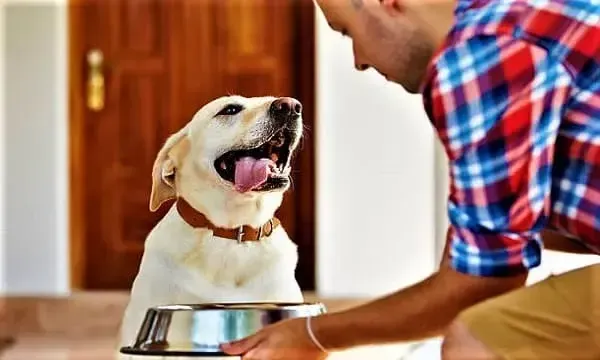
For example, if there is excess mucus coming out of your dog's nose, especially if it is yellow, green, or black, your dog is a sign that he is sick. This could mean that the dog is simply eating too much fat, or it could mean problems with the gallbladder, pancreas, or other things. If you've ruled out other causes of your dog's abnormal eating habits, the problem may be related to a medical condition.
Let's take a look at why your dog eats and how you can curb that nasty appetite. It is generally accepted that pica is associated with a lack of nutrition that the dog is trying to make up for, and the scientific community agrees with this. Dr. Kelly Black believes that nutritional deficiencies, hormonal imbalances, thyroid, diabetes, and even genetics can all contribute to booger consumption and pica in dogs.
Dogs with diabetes also have electrolyte imbalances and this can also cause eating boogers or faecal ingestion (coprophagia) in dogs. Without exercise, all dogs are doomed to bad behavior such as destruction, over-licking, and even eating boogers. Your dog is also likely to constantly scratch and rub his face.

The dog is always there to love us when we need it most: like he can read our minds. Believe it or not, it's not uncommon for dogs to lick their owners' noses and bite them in the same spot. Dogs may lick because they like the salty taste of their owner's skin, either out of love or out of habit and boredom. Dogs are clean animals and they will lick litter and stuff in their noses because it's their instinct and it's important to keep the group clean so that members of the group don't get sick.
Running your dog after a defecation may be marking his territory because the dog has scent glands in its paws (which also explains the post-defecation kick, which many dog owners believe is an attempt to cover up a mess). The likely reasons why your dog is nipping at you is that he wants attention, wants something from you, is trying to remind you of something, is affectionate or worried about something. Of course, it's natural for dogs to lick each other, but some Pomeranians do it so often that owners can't help but wonder why... some wonder if it means something is wrong or if it's a sign of bad behavior. The dog went from relieved to shivering to kill, to rolling around trying to get rid of that mysterious new smell.
If your dog is misbehaving, doesn't want to eat, vomits all the time, and simply doesn't trust your instincts. Eating only dry dog food is a bit like people eating nothing but fortified breakfast cereals. If an unbalanced diet is to blame, consider expanding the variety of foods your dog eats.
Dogs with parasites - both internal and external - will also eat non-food items such as booger. In addition to hunting for booger, carrion dogs have a natural instinct to hunt for chicken bones, food wrappers, dead birds, dry droppings, etc. Eating chicken bones can lead to many health problems. Eye problems can be very serious, and acting quickly in an emergency can save your dog's vision.

Is it true that dogs can eat boogers?
Dogs are notorious for snacking on things they may not be supposed to, like garbage and other household objects. However, some people believe that dogs can eat boogers.
The answer is yes and no. Eating a booger won’t make your dog sick or hurt him in any way. But if your dog eats a lot of boogers, he may have more trouble breathing because his nose will become clogged with mucus. It's also important to note that eating another animal's bodily fluids, such as an animal's blood or urine, can lead to health problems for your pet. So next time you find yourself picking your nose and then feeding it to your pup, reconsider!
Dogs are curious creatures.
They'll sniff out a new smell behind the couch, dig up your petunias, and eat anything - including boogers. It's not uncommon to see a dog with a string of snot dangling from its mouth or nose. It's tempting to think that some weird canine instinct is at play here, but it's actually just because dogs are indiscriminate eaters.
Some people might admit to eating their own boogers, but most would never give them to their dog. But what are the potential side effects of letting your dog eat snot? Is it really dangerous for your pup? We're going to break down the facts so you can decide!
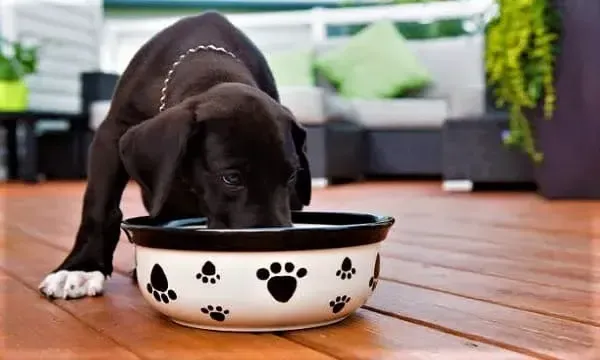
Why do dogs eat boogers?
Some dogs have a habit of eating the spittle from their mouths or the slobber from their fur. This type of behavior is known as pica and often includes eating dirt, stones, and other non-food items. Eating one’s own boogers is a form of pica that's become more popular in recent years, particularly among children.
There are many reasons why your dog may be eating his or her own boogers; it may just be a habit, but there are also plenty of reasons for concern. It's important to note that this behavior is usually nothing to worry about and will most likely go away at some point without any intervention. You can learn more about the causes of this type of behavior and how to stop it by reading the post "Can Dogs Eat Boogers?"
Do dogs get boogers?
It may seem like a silly question, but dogs do get boogers just like us. Just as with humans, it's not a pleasant thought to think about, but dogs have mucus in their noses that collects and can become dried or crusty. When it does, it becomes a "booger."
Boogers are more common in smaller breeds of dogs, especially those with short noses. In some cases, an excess of dried mucus can even cause the dog's nose to bleed and create dark crusts. The good news is that most dogs have no problem getting rid of their boogers on their own by wiping them away with the foot or leg. This is likely because the inside of a dog's nose is moist due to the constant production of mucus during regular breathing.
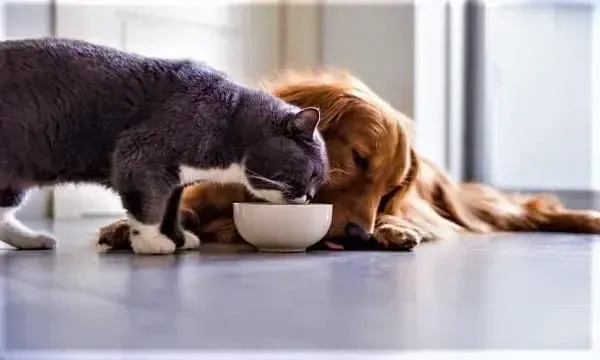
Do boogers taste good?
Some dogs just happen to like the taste of boogers. They might find that it tastes good or they might just have a habit of eating things off the ground that don't belong to them. It all depends on the individual dog and the type of pica behavior they're displaying.
If your dog has decided to eat their boogers, there are some things you can do to stop them from doing so. Try feeding your dog more nutritious foods and encourage them to chew on appropriate items like treats and toys instead. You can also give your dog something to do with their mouth, such as chewing on a bone, which will take up more time than eating boogers.
Can Dogs Get Boogers?
Dogs are fascinating creatures, often considered man's best friend. They exhibit a wide range of behaviors and physiological characteristics that captivate our curiosity. Among these peculiarities is the phenomenon of boogers. Boogers, or dried nasal mucus, are common in humans, but what about our furry companions? Can dogs get boogers? This essay explores this intriguing question.
Understanding Nasal Mucus:
Before delving into whether dogs can develop boogers, it is essential to grasp the purpose of nasal mucus. In both humans and animals, nasal mucus serves as a protective mechanism, trapping foreign particles, such as dust, bacteria, or allergens, from entering the respiratory system. Mucus also moisturizes the nasal passages and assists in filtering the air that is inhaled.
Boogers in Dogs:
While dogs do not possess the same dexterity as humans to use tissues, they do produce nasal mucus for similar reasons. However, due to their unique nasal anatomy, dogs may not develop boogers in the same way humans do. Unlike humans, dogs have a turbulent airflow through their nasal passages, which helps to prevent the buildup of mucus and thus the formation of boogers.
Nevertheless, dogs can still experience nasal discharge, which can be mistaken for boogers. This discharge may vary in consistency and color, ranging from clear and watery to thick and yellowish. It is essential to note that excessive or abnormal nasal discharge in dogs could be a sign of an underlying health issue, such as an infection, allergies, or nasal congestion. If a dog exhibits persistent or concerning nasal discharge, a veterinarian should be consulted for a proper diagnosis and treatment.
Should I clean my dog's eye boogers?
Dogs' eyes can produce boogers, too! And if you're a pet owner, you might find yourself wondering if it's something that needs to be cleaned. The answer is yes, but only in certain circumstances.
Dogs are typically very good about keeping their eye boogers from getting on furnishings or your clothing. However, there are instances when it can be necessary to clean out the eye boogers. For example, if you notice your dog starts having trouble opening his or her eyes or they start tearing frequently or excessively. This could indicate inflammation and warrants attention from a veterinarian. Similarly, if your dog has an accident in his or her crate and the eye boogers get on the blankets (or anything else), these should be washed as well so it doesn't irritate their skin while they sleep.
It’s important not to wipe away the eye boogers with your fingers as this can cause infection. Instead, use a soft cloth dampened with warm water to gently wipe them away without touching them directly.
What are boogers called?
Boogers are called snot.
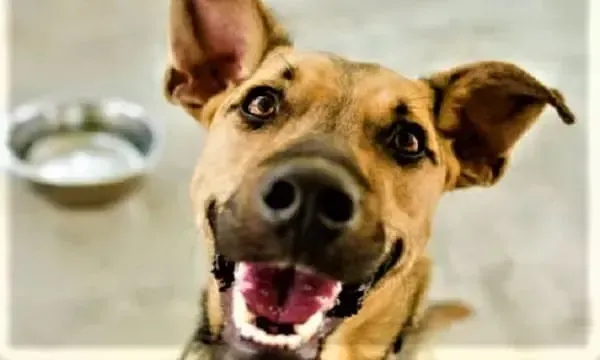
Why do boogers taste salty?
If someone has a cold, their boogers will be extra salty. Salty-tasting boogers are due to the nasal tissue swelling and becoming congested when one has a cold. When this happens, there’s more mucus in the nose and less air flow, which causes the salty taste. This can also happen if someone tries to blow their nose too hard or if they put too much water up their nose.
What are boogers made of?
Boogers are made of mucus, dead skin cells, and bacteria. So in that sense, they are not entirely unsafe to eat. But there is the chance of a dog picking up bacteria from their environment while eating the boogers. You can also see that eating something that came out of someone's nose could be icky.
Why do I eat my boogers and scabs?
- Eating one’s boogers or other substances from the nose is a type of pica, which is characterized by an appetite for non-food items. Pica can manifest in many different ways and is most common among children.
- Although it's not fully understood why people with pica eat these types of things, some scientists believe that it has to do with a need for oral stimulation as well as nutrition. It may also be a result of a mineral deficiency since these items are usually high in iron, zinc, and other minerals.
- Whatever the reason may be, people with pica often experience negative reactions after eating feces or their own boogers. This can include stomach pain, diarrhea, nausea, and constipation. It's important to note that much like other behavioral issues, pica tends to go away on its own without any intervention.
How many people eat their boogers?
In the United States, about 5% of people struggle with nose picking. Nose picking is a problem that is most common among children, especially in younger preschoolers.
No, it is not safe for dogs to eat boogers. While it may be a natural behavior for some dogs to explore and occasionally consume various substances, including their own boogers, it is important to discourage this habit. Boogers, also known as nasal mucus, can contain harmful bacteria, viruses, and other pathogens that may lead to health issues in dogs.
Three important points to note about the safety of dogs eating boogers are:
- Boogers can harbor bacteria and viruses that may cause infections.
- Ingesting boogers may lead to gastrointestinal problems in dogs.
- Regular consumption of boogers can become a habit that is difficult to break.
What are the risks of dogs eating boogers?
Dogs consuming boogers can expose themselves to various risks and health concerns. Some of the risks associated with dogs eating boogers include:
- Bacterial and viral infections: Boogers can contain bacteria and viruses, which may lead to respiratory infections, gastrointestinal issues, or other health problems in dogs.
- Digestive disturbances: Ingesting boogers can disrupt a dog's digestive system, leading to symptoms such as vomiting, diarrhea, or stomach discomfort.
- Reinforcing undesirable behavior: Allowing dogs to eat boogers can establish a habit that is difficult to break and may lead to them seeking out other substances to consume.
Can eating boogers cause health problems in dogs?
Yes, eating boogers can potentially cause various health problems in dogs. The nasal mucus can harbor pathogens, and when consumed, it may lead to infections or other health complications. Some health problems that can arise from dogs eating boogers include:
- Respiratory infections: Dogs may develop respiratory issues, such as coughing, sneezing, or nasal congestion, if they ingest bacteria or viruses present in boogers.
- Gastrointestinal disturbances: Ingesting boogers can disrupt a dog's digestive system, causing gastrointestinal problems like vomiting, diarrhea, or abdominal pain.
- Allergic reactions: In certain cases, dogs may have allergies to specific substances in boogers, leading to allergic reactions like itching, redness, or swelling.
How can I prevent my dog from eating boogers?
To prevent your dog from eating boogers, you can take the following steps:
- Supervise and redirect: Keep an eye on your dog's behavior and redirect their attention if you notice them showing interest in their boogers.
- Train and reward: Teach your dog basic commands such as "leave it" or "drop it" to discourage them from consuming boogers. Reward them with treats or praise when they obey the commands.
- Maintain good hygiene: Regularly clean your dog's nose and face to minimize the presence of boogers and reduce their accessibility to them.
When should I consult a veterinarian?
If you notice any concerning symptoms or behaviors related to your dog eating boogers, it is advisable to consult a veterinarian. Some situations where you should seek veterinary advice include:
- Persistent health issues: If your dog experiences recurring respiratory infections, gastrointestinal problems, or allergic reactions after eating boogers, a veterinarian can provide appropriate diagnosis and treatment.
- Unusual behavior or discomfort: If your dog shows signs of discomfort, pain, or unusual behavior after consuming boogers, it is important to seek professional guidance.
- Uncertainty about potential risks: If you are unsure about the potential risks or health implications of your dog eating boogers, a veterinarian can provide accurate information and advice.
0/10

